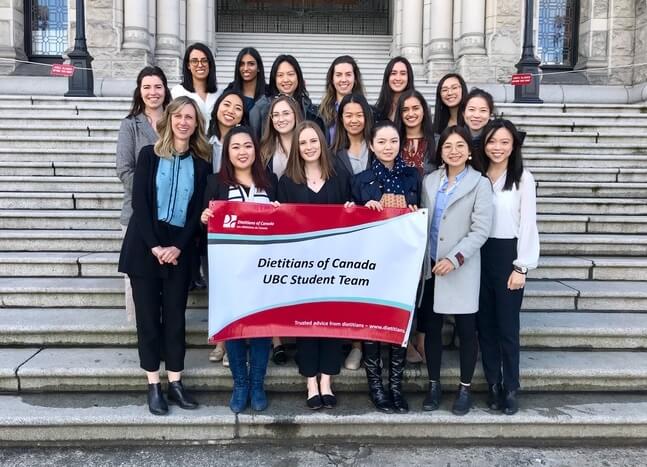All Categories
Featured
Table of Contents
The kinds of Nutritionists are: and. The former are those individuals that use the scientific method to research nutrients, both as specific compounds and as they interact in food and nutrition while the latter are specialists that assist in diagnosing the nutritional troubles of neighborhoods and in finding services to those problems.
: They work with health cares and global wellness organizations.: They are in charge of large food preparation and service.: They are professionals in nourishment and aging. They are Board certified in Gerontological Nourishment with the American Dietetic Association.: They are primarily involved with dietary related study in the clinical element of nutrition in illness states, public aspect on key, additional and often tertiary health avoidance and foodservice aspect in concerns involving the food prepared for people.
Who Has The Best Dietitian And Personal Trainer?
, and papers-- either as an expert guest opinion, routine columnist or guest, or for source, restaurant, or dish growth and critique.: These work under private practice. As explained above, all dietitians are nutritionists however not all nutritionists have the qualifications and certifications to be called dietitians.
This means specifically the very same point as Registered Dietitian (RD), a term that has actually been in use for a long time. All RDs are RDNs but some choose to call themselves that and some do not. Additionally making complex matters are permit needs. While accreditation to become an RD or RDN is governed by the Academy of Nutrition and Dietetics a nationwide company licensure is controlled by private states.

In order to give medical nutrition therapy and certify as suppliers for insurance coverage business, a dietitian needs to be accredited by the state. According to the Bureau of Labor Stats, the demand for dietitians and nutritionists is anticipated to boost by 20% in between 2010 and 2020 this is a much faster growth price than the standard for all professions.
The Best Celiac Nutritionist Service?
There are significant differences in compensation based upon specialization, with Professional Pediatric Dietitians and Dairy Nutritionists averaging about $90,000. In 2014, The Bureau of Labor Stats (BLS) located that the top 10% of dietitians and nutritional experts make greater than $79,000, and the lower 10% much less than $36,000 - Accredited Sports Dietitian. A mean hourly wage of $27.62 was computed for both fields, with the leading 10% earning over $38.00 per hour, and the lower 10% earning listed below $17.00 per hour

There is a variety of jobs readily available in different settings for those that want to function with the public, as well as for those who favor more research-focused work. Lots of enter into one of these fields in order to help people live much healthier lives which can be tremendously fulfilling.
With existing data that one-third of the united state population is obese, along with a multitude of senior united state locals, dietitians and nutritionists are likely to have an extra comprehensive role in the future. My Plan rates dietitians and nutritional experts at # 53 in their joy index of leading 300 jobs with the highest work contentment scores.
Along with participating in an accredited program, many states require dietitians to be accredited or to have professional qualification, or both. In comparison, only about half of states need such qualifications for nutritional experts. Also so, several specialist functions for nutritionists ask for at least a bachelor's level, and the exact same certification is offered for nutritionists and dietitians alike.
Who Has The Best Diabetic Dietitian Service?
It's crucial to note that starting Jan. 1, 2024, you'll likewise require to hold a master's level to gain an RD/RDN credential. Usual bachelor's degrees for dietitians consist of medical nutrition, dietetics, and public health. Your core courses might include: Food science Chemistry Health care policy Professional nutrition Biostatistics Microbiology Food solution monitoring You'll likewise need to finish a dietetic internship.

Whether created in regulation or not, dietitians and nutritionists many times need a comparable education. Common bachelor's degrees for nutritional experts include nutrition scientific research or a related technique, such as dietetics, kinesiology, food system monitoring, or biochemistry and biology.
The variety of hours you'll require may rely on needs in the state where you'll function. Whether you plan to make a credential or not, it's an excellent concept to complete at least one internship to obtain valuable experience before looking for a full time role. Licensing and qualification requirements for nutritional experts and dietitians vary from state to state.
What Do I Need To Know To Hire A Functional Dietitian?
An expert accreditation demonstrates your knowledge and understanding in your field. Right here are the top accreditations for dietitians and nutritional experts.
The titles are basically the same. There's no professional difference in between them, and you're cost-free to select which one you want to utilize based upon personal choice. To take the certification exam, you have to: Make a bachelor's degree that's certified by the ACEND Full a dietetics teaching fellowship After Jan. 1, 2024, you'll require to gain a master's degree to qualify for the certification.
What Is The Best Personal Trainer And Dietitian Software?
Bureau of Labor Statistics places dietitians and nutritionists in the very same classification and says they gain a average yearly salary of $69,680. However there is an array in salaries, with the lower 10% around $44,910 and the leading 10% around $98,830, according to the BLS. Nutritional expert and dietitian roles are anticipated to expand 6.6% with 2032, according to the BLS.
This does not mean that one occupation is exceptional to the other, as they both have various functions and qualifications that could in some cases overlap. If you want to find out more regarding what makes these professions distinct, keep reading. Dieticians are experts who aid boost the lifestyle with healthy food options.
What Is The Best Athletic Performance Nutrition?
Nutritional expert guidance about nutrition's effect on health and wellness. They assist individuals take on much healthier means of eating and produce personalized plans based upon goals. Their services consist of dietary analysis and counselling, meal planning and creating healthy eating programs. Although some have formal education and qualifications, others may have more fundamental qualifications. The area is less controlled than diet professionals; thus, nutritional experts' degrees of expertise and qualifications can vary.
There are numerous distinctions between dieticians and nutritional experts. As their careers advance, many dieticians go after sophisticated levels, like a Master's or Doctorate, to specialise in details areas of nourishment.
Table of Contents
Latest Posts
Clinical Nutritionist
Best Dietician – Joondalup
Clinical Nutritionist – Stirling
More
Latest Posts
Clinical Nutritionist
Best Dietician – Joondalup
Clinical Nutritionist – Stirling